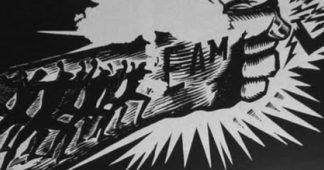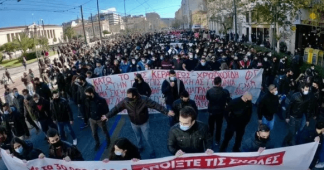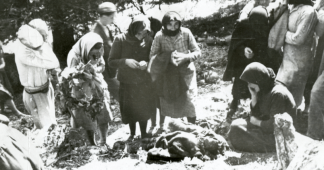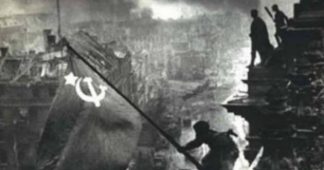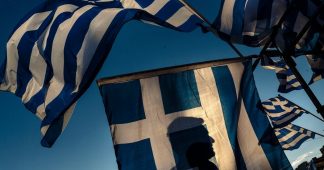International Federation of the Resistance Fighters (FIR)
Armed resistance developed in all the territories occupied by German fascism and its allies, hindering the strategic objectives of the occupiers by requiring several divisions to be deployed for combat and thus missing from the front lines.
One of the largest military structures, with over 100,000 fighters at the end, was the Greek People’s Liberation Army (Ellinikos Laikos Apelevtherotikos Stratos, ELAS). It was founded on February 16, 1942 by the Greek National Liberation Front (Ethnikó Apelevtherotikó Métopo, EAM). The abbreviation ELAS phonetically stands for “Hellas” in Modern Greek, the proper name of Greece. The main task of ELAS was to fight against the German and Italian occupation forces. After the liberation, ELAS was to secure national independence and ensure the establishment of democratic conditions and free elections.
Even before February 1942, Aris Velouchiotis had assembled armed units in the hinterland on behalf of the KKE. After the formation of ELAS, Velouchiotis formed the first partisan units in May, which participated in the spectacular sabotage operation on November 25, 1942, the blowing up of the Gorgopotamos railroad bridge. In conjunction with the EAM, ELAS developed into the strongest and only supra-regional military force in the Greek resistance struggle. It was joined by local partisan groups in 1943. Velouchiotis remained the “Kapetanios” (leader of the partisans), who in this capacity was a legendary figure in the ELAS liberation struggle. By mid-1943, ELAS had about 50,000 men and women under arms. Almost as many again were part of the (unarmed) ELAS reserve. Although British headquarters actually supported the monarchist forces, it entered into a National Band Agreement with ELAS in July 1943 with recognition as an “allied army.” The British, who also supplied arms and materiel, were primarily interested in attacks on the supply routes of Italian and German troops.
At the same time, ELAS fought for “liberated areas” in various parts of Greece until early 1944. There, on March 10, 1944, EAM proclaimed the “mountain government” of “Free Hellas” – the “Political Committee of National Liberation.”
In the ranks of the Greek partisans were also foreign anti-fascists. Political prisoners from German detention centers, who were used as “Strafdivision 999”, among others Wolfgang Abendroth, Ludwig Gehm and Falk Harnack, member of the “White Rose”, fought in the ranks of ELAS from winter 1943. Even Italian soldiers defected – with their weapons – to ELAS when Italy broke away from the Axis alliance in 1943.
After the military victory over the German occupation forces, however, the ELAS units experienced that the British high command was primarily concerned with disarming the Greek partisans and restoring the Greek monarchy. When, during an EAM demonstration against the reestablished Greek government on December 3, 1944, in Athens’ Syntagma Square, Greek police forces opened fire on the unarmed demonstrators under the eyes of British observers, a military confrontation also with the British troops began, which ended with the Treaty of Varkiza and meant the demobilization of the ELAS forces. Since the royalist forces – backed by the British army – continued their persecution of ELAS supporters with great violence, it is rightly called a Greek Civil War, which lasted from 1946 to 1949. Many demobilized ELAS commanders had to leave the country with their families to escape the persecutions that began. They found refuge in Bulgaria, Hungary, Romania and Poland.
Only in 1982 – despite massive protests from the right – a law was passed in Greece that recognized the struggle of EAM/ ELAS as part of the National Resistance. The FIR and its member federations have appreciated these heroic achievements of the Greek resistance for the defeat of the fascist barbarism already since their foundation and will never forget them.
We remind our readers that publication of articles on our site does not mean that we agree with what is written. Our policy is to publish anything which we consider of interest, so as to assist our readers in forming their opinions. Sometimes we even publish articles with which we totally disagree, since we believe it is important for our readers to be informed on as wide a spectrum of views as possible.
